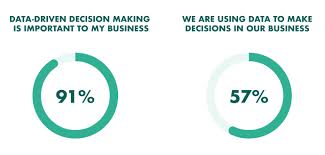Making Big Life Decisions: A Guide to Navigating Life’s Crossroads
Life is full of choices, both big and small. But it’s the big life decisions that often have the power to shape our future and define who we become. Whether it’s choosing a career path, starting a family, moving to a new city, or pursuing a new passion, these decisions can be both exciting and overwhelming.
When faced with a big life decision, it’s important to approach the process with clarity and purpose. Here are some key steps to help you navigate life’s crossroads:
- Reflect on your values and goals: Take the time to understand what truly matters to you. What are your core values? What are your long-term goals? By aligning your decision with your values and goals, you’ll ensure that you’re making choices that are in line with who you are and what you want out of life.
- Gather information: Knowledge is power when it comes to making big decisions. Research and gather as much information as possible about the options available to you. Talk to experts, seek advice from trusted friends or mentors, read books or articles related to your decision. The more informed you are, the better equipped you’ll be to make an informed choice.
- Consider the pros and cons: Make a list of the potential advantages and disadvantages of each option before you. This exercise will help you weigh the potential risks and benefits associated with each decision. It may also reveal any potential trade-offs or sacrifices that need to be made.
- Trust your intuition: While gathering information is crucial, don’t underestimate the power of intuition in guiding your decision-making process. Sometimes our gut feelings can provide valuable insights that logic alone cannot provide. Pay attention to those inner nudges that may signal what feels right for you.
- Seek support: Big life decisions can feel overwhelming when faced alone. Reach out for support from trusted friends, family, or professionals who can provide guidance and a fresh perspective. Sometimes talking through your thoughts and concerns can help clarify your thinking and bring new insights to light.
- Embrace the possibility of change: Big decisions often come with a degree of uncertainty and change. Embrace the idea that stepping out of your comfort zone can lead to personal growth and new opportunities. Remember that even if things don’t go exactly as planned, you have the ability to adapt, learn, and course-correct along the way.
- Trust yourself: Ultimately, you are the expert on your own life. Trust in your ability to make sound decisions that resonate with your values and aspirations. Have confidence in yourself and embrace the journey ahead with optimism and resilience.
Making big life decisions can be both exhilarating and daunting. By approaching them with intention, reflection, and support, you can navigate these crossroads with greater clarity and confidence. Remember that life is a series of choices, and each decision is an opportunity for growth, fulfillment, and creating a life that aligns with who you truly are.
Answering Your Top 6 Questions on Making Big Life Decisions
- What are the pros and cons of making this decision?
- What are the potential risks involved in this decision?
- How will this decision affect my future?
- Is this the right time to make this decision?
- Should I consult with someone before making a big life decision?
- How can I ensure that I make the best possible choice for my situation?
What are the pros and cons of making this decision?
When it comes to making big life decisions, there are pros and cons to consider. Here are some general points to help you assess the potential advantages and disadvantages:
Pros:
Personal growth: Making big decisions often involves stepping out of your comfort zone, which can lead to personal growth and self-discovery. It allows you to challenge yourself, learn new skills, and expand your horizons.
New opportunities: Big decisions can open doors to new opportunities that you may not have otherwise encountered. Whether it’s a career change, starting a family, or pursuing a passion, taking the leap can lead to exciting possibilities.
Increased satisfaction and fulfillment: Making decisions that align with your values and aspirations can bring a sense of fulfillment and satisfaction. It allows you to live a life that is true to yourself and brings you joy.
Building resilience: Facing big decisions requires courage and resilience. By navigating through these challenges, you develop resilience and the ability to adapt to change in other areas of life as well.
Cons:
Uncertainty: Big decisions often come with a degree of uncertainty about the outcome. This uncertainty can create anxiety or fear of the unknown.
Potential risks: Some big decisions involve inherent risks or potential drawbacks that need careful consideration. It’s important to assess any potential negative consequences or trade-offs associated with each option.
Emotional toll: Decision-making processes can be emotionally draining, especially when there is no clear-cut answer or when different options have their own emotional implications.
Regret or second-guessing: After making a big decision, it’s common for doubts or second-guessing to arise. It’s important to be prepared for moments of doubt and trust in the decision-making process.
It’s essential to note that these pros and cons may vary depending on the specific decision you’re facing. Take time to reflect on your unique circumstances while considering both the positive outcomes and potential challenges before making any big life decision.
What are the potential risks involved in this decision?
When making big life decisions, it’s important to consider the potential risks that may be associated with each option. While risks can vary depending on the specific decision at hand, here are some common ones to be mindful of:
- Financial risks: Many big life decisions involve financial considerations. For example, changing careers or starting a business can involve financial investments and uncertainties. It’s important to assess the potential financial risks and ensure you have a plan in place to manage them.
- Emotional risks: Big life decisions often come with emotional implications. Moving to a new city or ending a relationship, for instance, can bring about feelings of loneliness or uncertainty. It’s crucial to consider how these emotional challenges might impact your well-being and have strategies in place for self-care and support.
- Time commitment: Some decisions require a significant time commitment, such as pursuing higher education or taking on a demanding job. It’s essential to evaluate whether you’re willing and able to dedicate the necessary time and energy required for success.
- Relationship dynamics: Certain decisions may affect your relationships with others. Relocating or making major lifestyle changes could strain relationships with family and friends who may not understand or support your choices. Considering the potential impact on your personal connections is important.
- Opportunity costs: Every decision involves trade-offs and opportunity costs – what you gain from one choice may mean sacrificing something else. For example, choosing to pursue one career path might mean giving up opportunities in another field.
- Uncertainty of outcomes: No decision comes with a guarantee of success or happiness. There will always be an element of uncertainty when embarking on new paths or making significant changes in life.
- Regret: There is always the possibility of regretting a decision later on, especially if it doesn’t turn out as expected. It’s important to weigh the potential regrets against the potential rewards when making big life decisions.
Remember that risks are a natural part of life, and they should not discourage you from pursuing your goals and aspirations. The key is to identify and assess the risks involved, develop contingency plans, seek advice when needed, and make informed choices based on your values, priorities, and risk tolerance.
How will this decision affect my future?
When making a big life decision, it’s natural to consider how it will impact your future. While the exact outcome can never be predicted with certainty, there are some factors to consider that can help you assess the potential effects:
- Long-term goals: Reflect on your long-term aspirations and evaluate how the decision aligns with those goals. Will it bring you closer to or further from what you envision for your future?
- Personal growth: Consider whether the decision has the potential to promote personal growth and development. Will it challenge you, expand your skills, or provide new opportunities for learning and self-improvement?
- Financial implications: Assess the financial impact of your decision. Will it require a significant investment? Can you afford it? Consider both short-term and long-term financial consequences.
- Relationships: Examine how the decision may affect your relationships with family, friends, or significant others. Will it strengthen or strain those connections? Are there any potential trade-offs in terms of time spent with loved ones?
- Lifestyle changes: Think about any lifestyle changes that may result from your decision. Will it require you to relocate, change jobs, or adapt to a new routine? Consider if these changes align with your preferences and if you are willing to embrace them.
- Emotional well-being: Reflect on how the decision may impact your overall happiness and emotional well-being. Will it bring fulfillment, satisfaction, and joy into your life? Or is there a risk of increased stress or unhappiness?
- Alternative paths: Explore different scenarios by considering alternative choices or paths not taken. Imagine how each alternative could shape your future differently and evaluate which one aligns best with your values and aspirations.
Remember that no decision is without risks or guarantees of success. It’s important to weigh these factors against each other while considering both short-term implications and long-term consequences.
Ultimately, trust yourself and make decisions that feel right for you. Embrace the unknown, be adaptable to change, and remember that even if a decision doesn’t turn out as expected, you have the ability to learn, grow, and make new choices along the way.
Is this the right time to make this decision?
Determining whether it is the right time to make a decision depends on various factors and can vary depending on the specific situation. Here are some considerations to help you assess whether the timing is appropriate:
- Readiness: Evaluate your readiness to make the decision. Are you mentally and emotionally prepared? Do you have the necessary information and resources to make an informed choice? Assessing your preparedness can help you gauge if it’s the right time.
- Importance and urgency: Consider the significance and urgency of the decision. Is there a pressing need to make a choice now, or can it be delayed without significant consequences? Understanding the importance and urgency can help determine if immediate action is required.
- Timing in relation to external factors: Examine any external factors that may influence your decision. Are there any upcoming events, deadlines, or circumstances that could impact your options or outcomes? Evaluating these external factors can provide insight into whether the current timing aligns favorably with your goals.
- Stability and support: Assess your personal stability and support system. Do you have a stable foundation that allows you to focus on making decisions effectively? Are there people in your life who can provide guidance, advice, or emotional support during this process? Having stability and support can contribute positively to decision-making.
- Gut feeling: Trust your intuition. Sometimes, despite all logical considerations, our instincts guide us towards what feels right or wrong about a particular timing. Pay attention to any intuitive nudges that may be signaling whether it’s the right time for you.
Remember that there is no universally “right” time for every decision; it often depends on individual circumstances and preferences. Reflecting on these factors will help you assess whether the current moment aligns with your needs and goals, enabling you to make an informed choice about timing.
Should I consult with someone before making a big life decision?
Consulting with someone before making a big life decision can be incredibly valuable. While the ultimate choice is yours to make, seeking the advice and perspective of others can provide you with valuable insights and help you consider aspects that you may have overlooked.
Here are a few reasons why consulting with someone can be beneficial:
- Gain different perspectives: Consulting with others allows you to gain different viewpoints on your situation. They may offer fresh insights, alternative solutions, or share their own experiences that can broaden your understanding of the decision at hand.
- Receive emotional support: Big life decisions can bring about a range of emotions such as excitement, fear, or uncertainty. Talking to someone you trust can provide emotional support and reassurance during this process. They can offer guidance and help you navigate any doubts or concerns you may have.
- Access expertise: Seeking advice from professionals or experts in the relevant field can provide specialized knowledge that could greatly inform your decision-making process. They may offer insights based on their experience and expertise that could prove invaluable in making an informed choice.
- Identify blind spots: When we are deeply involved in a decision, it’s natural to have blind spots or biases that cloud our judgment. Consulting with others helps expose these blind spots by providing an external perspective and highlighting factors we may have missed.
- Consider potential consequences: Others might be able to shed light on potential consequences or risks associated with your decision that you hadn’t considered before. They might bring up practical considerations or offer cautionary advice based on their own experiences.
Remember, while seeking advice is important, ultimately the decision rests with you. It’s essential to carefully weigh all perspectives against your own values, goals, and intuition before making a final choice. By consulting with others, you empower yourself to make a more informed decision while gaining support along the way.
How can I ensure that I make the best possible choice for my situation?
Ensuring that you make the best possible choice for your situation requires careful consideration and a thoughtful approach. Here are some strategies to help you in the decision-making process:
- Define your priorities: Start by identifying your priorities and what matters most to you in this particular situation. Consider your values, goals, and what aligns with your long-term vision. This will provide a solid foundation for evaluating options.
- Gather information: Seek out reliable and relevant information about the choices you’re considering. Research different perspectives, consult experts or professionals, read books or articles, and gather data that can help you understand the potential outcomes and implications of each option.
- Consider potential outcomes: Visualize the potential outcomes of each choice. Think about the short-term and long-term consequences, both positive and negative. Evaluate how each option aligns with your priorities and how it may impact various areas of your life, such as relationships, career, health, or personal growth.
- Evaluate risks and benefits: Assess the risks and benefits associated with each option. Consider the potential challenges or obstacles that may arise with each choice, as well as the potential rewards or opportunities they offer. Weigh these factors against your priorities to determine which option carries more advantages than drawbacks.
- Trust your intuition: Listen to your inner voice or intuition when making decisions. Sometimes our gut feelings can provide valuable insights that logic alone cannot provide. Pay attention to any strong inclinations or hesitations you may have towards a particular choice.
- Seek advice from others: Engage in discussions with trusted friends, family members, mentors, or professionals who can offer different perspectives on your situation. Their insights may shed light on aspects you may have overlooked or provide valuable guidance based on their experiences.
- Test it out: If possible, explore ways to test out different options on a smaller scale before committing fully. For example, if you’re considering a career change, you could try volunteering or taking on a part-time role in that field to gain firsthand experience and assess if it’s the right fit for you.
- Embrace flexibility: Recognize that decision-making is not always about finding the perfect choice but rather making the best choice with the information available at the time. Be open to adapting and adjusting your path as new information or circumstances arise.
- Take calculated risks: Making big decisions often involves taking risks. Assess the level of risk associated with each option and consider your tolerance for uncertainty. Sometimes, stepping out of your comfort zone can lead to significant personal growth and unexpected opportunities.
- Trust yourself: Ultimately, have confidence in your ability to make decisions. Trust that you have considered all relevant factors, weighed your options thoughtfully, and made the best choice based on your unique circumstances and aspirations.
Remember, making decisions is a continuous process, and it’s normal to feel some uncertainty or doubt along the way. Be patient with yourself, learn from each decision you make, and embrace the journey of personal growth that comes with navigating life’s choices.




